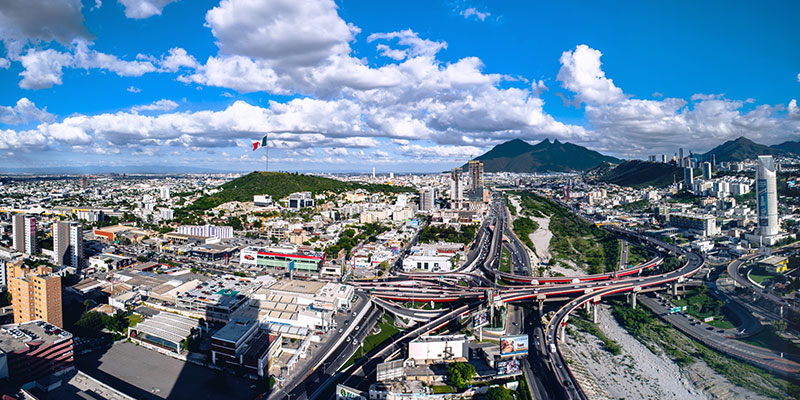With climate change raising temperatures, Monterrey, Mexico, has joined the list of major cities facing ‘day zero,’ the day water supplies shut down.
Decentralized water and wastewater treatment can prevent taps from running dry in cities like Monterrey
In July of 2022, a water crisis fueled by climate change in Monterrey, Mexico, led to taps running dry in the city, which has a population of around 5 million people. As a result, desperate residents, whose water supply was then restricted to just a few hours a day at best, were forced to queue at designated water points to receive their daily ration of water.
The water they received — if they received any at all — was often brown and murky because it picked up sediment from the bottom of the nearly empty reservoir it was drawn from.
Despite rains in September and October of 2022, not all municipalities had regained water supply.
The region and its inhabitants are being significantly impacted by the effects of climate change. Average temperatures in Mexico have risen by 1.5 degrees Celsius since preindustrial times, and are expected to warm by 3.2 C by 2100.
Drought conditions in Mexico and Central America are expected to worsen in the future, according to a report, “Water Cycle Changes,” produced by the United Nations Intergovernmental Panel on Climate Change (IPCC). The report points out that overuse of water in northern Mexico and western parts of the United States, together with overburdened infrastructure, are exacerbating the climate-related risks.
The water supply for the city of Monterrey is stored in open reservoirs. As things get hotter, more water is lost to evaporation. Years of prolonged drought have caused soils to become hard and crusty, so when rains do come, water is lost to runoff, which promotes flooding and keeps the water from permeating the soil to replenish groundwater.
Taps Running Dry Around Globe
Monterrey is not the only major city at risk of running out of water. In 2018, Cape Town, South Africa, faced a similar crisis, and more recently in July of this year, the dams that supply Nelson Mandela Bay metropolitan area, including the coastal city of Gqeberha, population 1.3 million, ran dry, resulting in people having to queue for hours to receive water.
Other cities at risk of running out of water include Los Angeles; Mexico City; Jakarta, Indonesia; Cairo; São Paulo; Beijing; Chennai, India; Dhaka, Bangladesh; Bangalore, India; and Melbourne, Australia.
With populations in these major metropolitan areas continuing to grow and water supplies dwindling, governing bodies must take action and put mitigation measures in place to ensure the water security of the residents they serve.
Decentralized Solutions for Water Security
What can municipalities do to protect residents from the dire consequences of facing “day zero” — the day when their taps run dry? One approach is decentralization, or installing smaller-scale plants near the point of use.
Potable water is typically treated at large, centrally located water treatment plants that distribute water to households and businesses throughout a city or region. Once the water used, it is flushed down the drain and into a sewer pipe to be sent to a centrally located wastewater treatment plant before being discharged into the environment.
Investing in large-scale plants can limit flexibility in dealing with changing needs. For example, toward the end of its so-called Millennium Drought, Australia invested large amounts of money into a huge desalination plant, which ended up sitting idle for many years until drought returned and it was reactivated at a high cost to ratepayers.
Alternatively, Fluence offers compact, packaged water and wastewater treatment solutions that are ideal for decentralized use and that can respond quickly to changing needs. Because decentralization eliminates much of the cost of pipelines, it can bring up-to-date treatment to more remote areas.
These cost-effective, portable, and scalable solutions include NIROBOX™ membrane-based desalination and freshwater purification plants, which can ensure a steady supply of potable water and prevent taps from running dry.
Fluence’s Aspiral™ decentralized wastewater treatment plants offer an energy-efficient and sustainable wastewater treatment solution that can safely recycle wastewater for reuse as irrigation water or for other nonpotable applications.
Wastewater reuse not only ensures a steady and sustainable supply of water for nonpotable uses, but it also reduces the demand on overexploited natural water sources. Contact Fluence to learn more about how we can help ensure water availability in your community.

